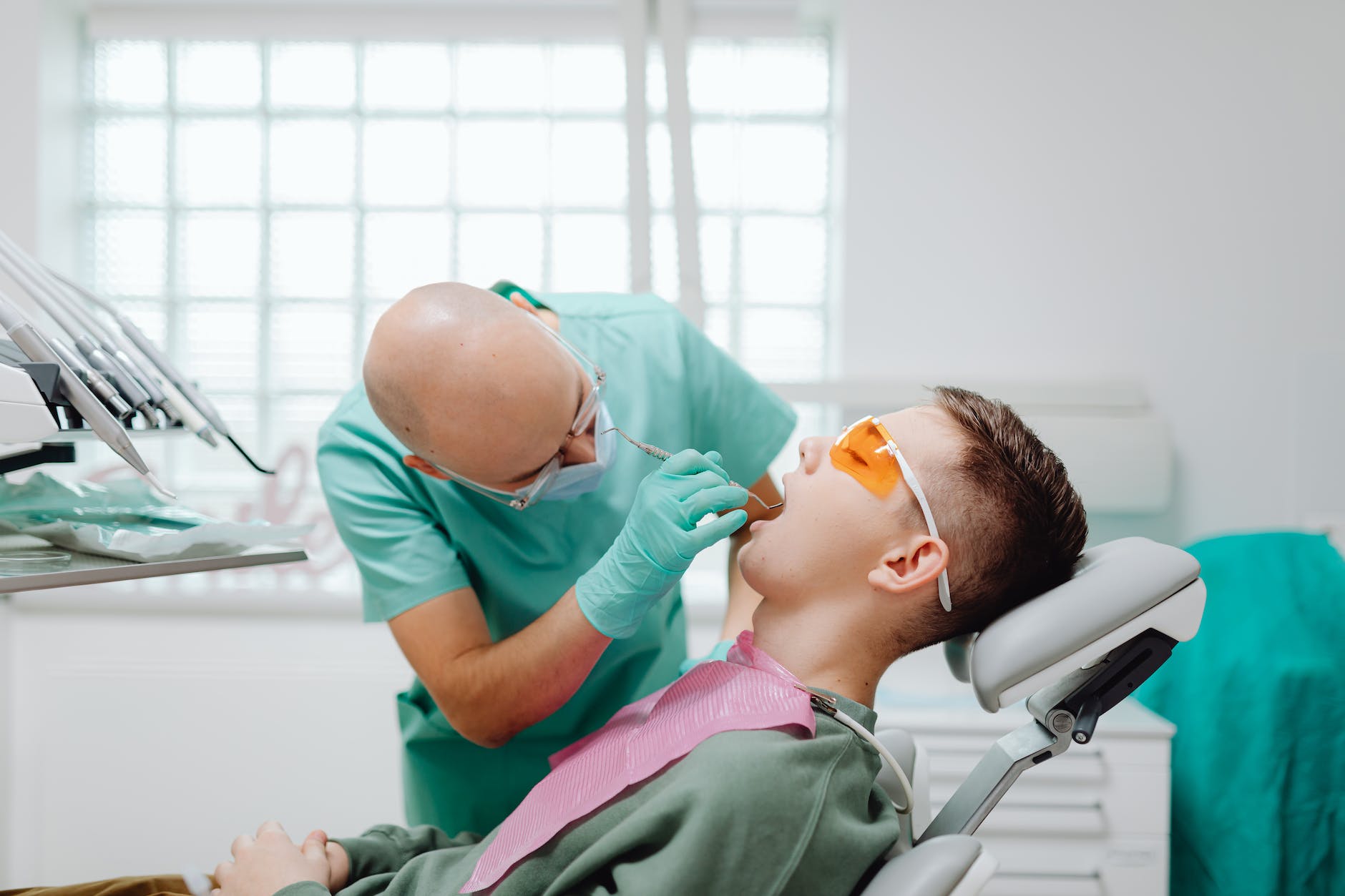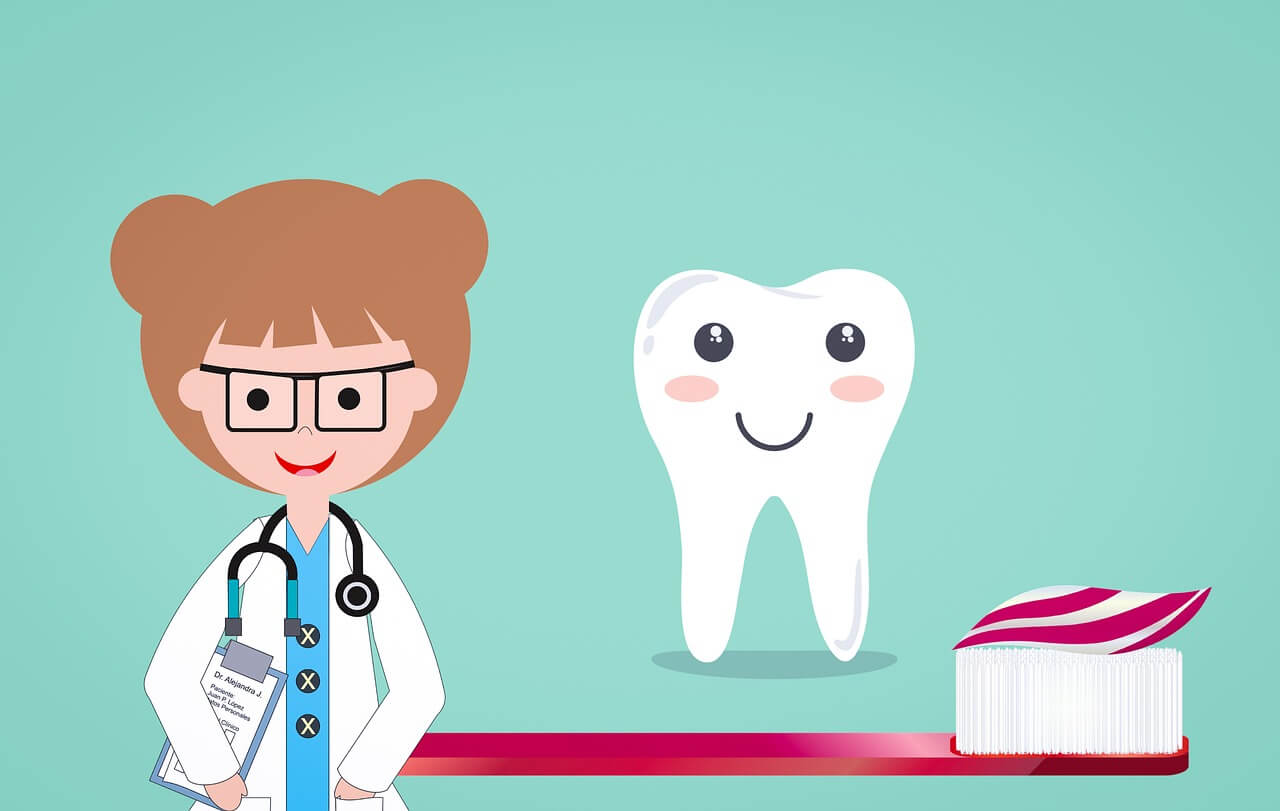
Regular dental checkups are crucial to maintaining optimal oral health and overall well-being. Poor dental health can result in severe health complications, including cardiovascular disease, diabetes, and stroke.
Despite the recommendations to visit the dentist at least twice yearly, many individuals often neglect this aspect until they experience severe pain or discomfort.
The CDC reports that roughly 26% of adults in the United States are affected by untreated tooth decay, whereas over 46% display symptoms of gum disease. These alarming statistics highlight the importance of prioritizing dental checkups as a preventive measure to avoid costly and painful dental procedures down the line.
By understanding the signs that require immediate attention from a dental professional, you can protect your dental health and achieve a more radiant and healthier smile. So, let’s get started.
- Tooth Decay
Tooth decay is mainly caused by the buildup of plaque and bacteria on tooth enamel leading to cavities and eventually damaging teeth. Other factors may include acidic foods and drinks, genetics, eating disorders such as bulimia, and radiation therapy.
Implementing good oral hygiene habits, such as brushing twice a day, flossing daily, and scheduling routine dental examinations can aid in the prevention of tooth decay.
Tooth decay may cause tooth sensitivity, pain, and discomfort while eating or drinking if left untreated. It can also lead to other dental problems, such as tooth abscesses and tooth loss.
Hence, in case of tooth loss, dental implants can provide an effective and long-lasting solution for tooth replacement.
Dental implants involve the surgical insertion of artificial tooth roots into the jawbone, which serve as a foundation to support dental bridges or replacement teeth. They are designed to look, feel, and function like natural teeth and can help restore your smile.
- Gum Problems
Gum problems are a common oral health issue resulting from poor dental hygiene, genetics, aging, hormonal changes, and certain medical conditions such as diabetes. Common gum problems include bleeding gums (a sign of gingivitis) and receding gums (caused by aggressive brushing, gum disease, or aging).
Early diagnosis and treatment through dental checkups can prevent gum disease from progressing to more serious problems like tooth loss.
- Dry Mouth
A dry mouth (xerostomia) results from insufficient saliva, which helps neutralize acids, washes away food particles and prevents tooth decay. Causes include medication side effects, diabetes, radiation therapy, nerve damage, dehydration, smoking, and alcohol consumption.
To treat this, your dental professional may recommend increasing water intake, using sugar-free gum or lozenges to stimulate saliva production, and avoiding foods and drinks that can worsen dry mouth.
- Lingering Sores
Mouth sores are a common problem that can occur on the gums, lips, tongue, or inside of the cheeks. They can be painful and uncomfortable, making eating, drinking, or speaking difficult. Most mouth sores heal without treatment within a few days or weeks, but some may require medical attention.
Common types of mouth sores are:
- Canker sores are small, painful ulcers that typically appear inside the mouth and last several days.
- Cold sores, known as fever blisters, are caused by the herpes simplex virus. They can cause painful blisters on the lips or around the mouth.
- Ulcers are open sores that can develop anywhere inside the mouth and may be a sign of a more serious condition.
If experiencing any of these sores, seek medical attention asap. Your dentist may recommend topical or oral medication, laser therapy, or surgery in severe cases.

- Toothache and Sensitivity
Toothache and sensitivity are common dental issues that require a dental checkup. Toothache can be caused by tooth decay, gum disease, or an abscessed tooth, affecting daily activities. Sensitivity causes sharp, sudden pain in one or more teeth when exposed to temperature changes and sweet or sour foods. Both worsen over time and may indicate underlying dental problems.
It is important to schedule a dental checkup if you experience persistent toothache or sensitivity. Early detection and treatment can prevent further damage to your teeth and gums, helping you maintain optimal oral health.
- Persistent Bad Breath
Persistent bad breath, or halitosis, is a common dental problem that may lower your confidence and social interactions. It is mostly caused by accumulated bacteria in the mouth, which can exacerbate and cause medical conditions such as gum disease.
Symptoms of halitosis may include a foul odor from the mouth, a bad taste in the mouth, and a white coating on the tongue.
If you are experiencing persistent bad breath, see your dentist for an evaluation. Your dentist can identify the underlying cause of your halitosis and recommend appropriate treatment options.
- Jaw Problems
A painful jaw, discomfort or clicking sounds when opening or closing the mouth, and swelling around the jaw or face, can all be signs of jaw problems. They may affect your ability to eat, speak, and perform other daily activities.
Common causes of jaw problems include periodontal disease, toothache, infections, arthritis, injury, tooth grinding, and sinus problems.
If facing jaw problems, get a dental checkup immediately. Your dentist will determine the cause and may offer treatment, including physical therapy, pain relief medication, lifestyle changes, dental devices such as mouthguards, or more invasive treatments such as surgery.

Teeth treatments surgery
- White Spots on Teeth
White spots on teeth can occur for various reasons, such as excess fluoride intake during tooth development, poor oral hygiene, and demineralization of tooth enamel due to acidic drinks or foods. They can also be a sign of early tooth decay.
If you detect white spots on your teeth, seek advice from your dentist to identify the root cause and obtain suitable treatment. Treatment options may include topical fluoride treatments, dental bonding, or tooth-colored restorations.
- Pregnancy
During pregnancy, hormonal changes can cause inflammation of the gums and increase their sensitivity to plaque buildup. This condition, known as Pregnancy Gingivitis, is common and can be prevented or controlled with regular dental cleanings.
Failure to address oral health problems during pregnancy can also lead to low birth weight in newborns. Therefore, seeing your obstetrician regularly and scheduling regular visits to your dentist for optimal dental and overall health during pregnancy is important.
Conclusion
Regular dental checkups are vital to ensure good oral health and detect potential issues early. Neglecting dental problems can lead to serious health implications and expensive treatments later.
Remember, a healthy smile reflects a healthy body, and prevention is always better than cure.
So, don’t wait for the pain to become unbearable; prioritize dental health and schedule your next dental checkup ASAP!






